News
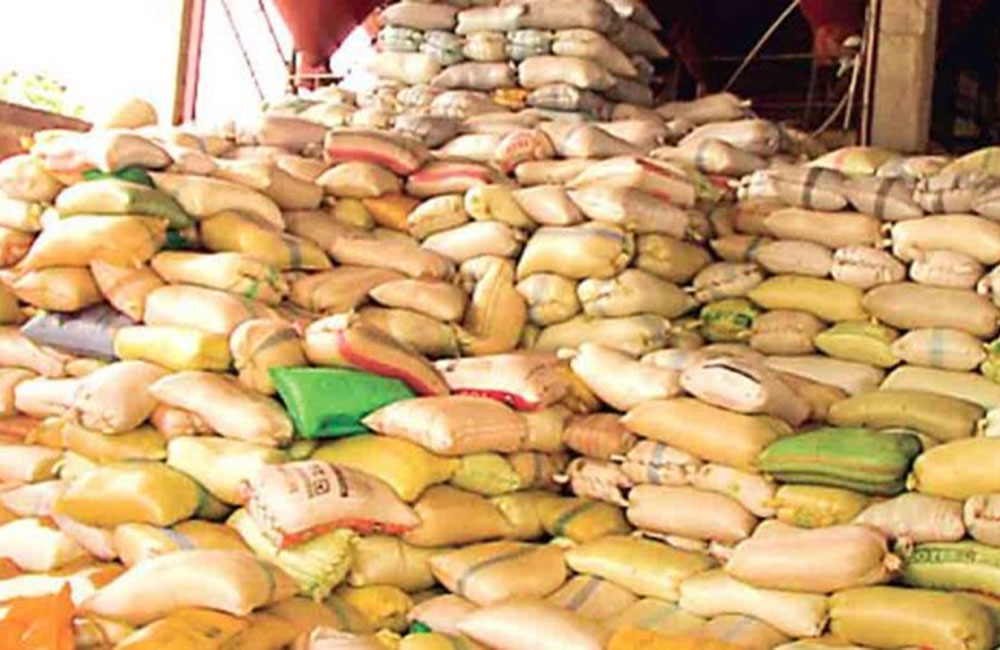
Over 700,000 KG paddy missing from Govt storage
Two officers attached to the Paddy Marketing Board (PMB) have been interdicted over the disappearance of nearly 700,000 kilograms of paddy stocks worth around Rs. 65 – 70 million.
According to media reports, the paddy stocks were reported missing from two government-owned paddy stores in Kurunegala.
The Chairman of the Paddy Marketing Board confirmed that two officers have been interdicted in connection to the incident.
Minister of Agriculture Mahinda Amaraweera last week called for a report following allegations of paddy stocks going missing from 05 government paddy stores in Kurunegala District.
Multiple complaints were made by the employees of the PMB alleging that officials from the head office and regional offices of the PMB were involved in the disappearance of the said paddy stocks.
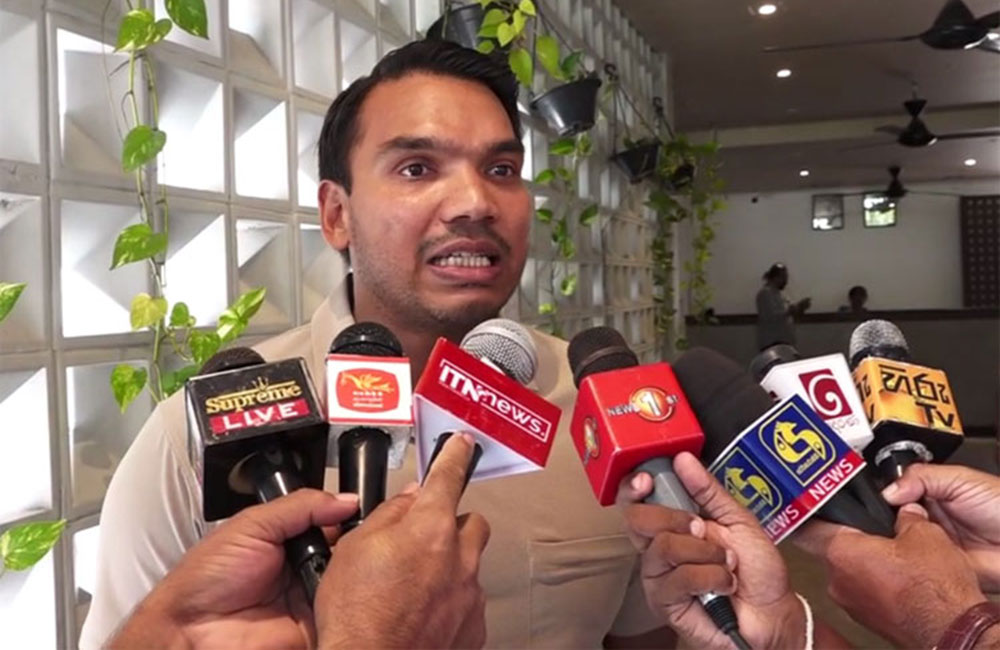
Namal slams Cabinet reshuffle, says President should understand coalition politics
SLPP Parliamentarian Namal Rajapaksa has voiced his displeasure over the recent Cabinet reshuffle that took place, deeming it a mere ‘change of posts’, as opposed to an effective solution the issues Sri Lanka is currently facing.
Responding to questions from the media, Rajapaksa emphasised that when running a coalition government such as the incumbent administration, it is the state’s responsibility to ensure that a mechanism in place which would allow for discussions to be held with all political parties involved in the decision-making process.
Commenting further on the matter, MP Rajapaksa revealed that since of late, the Sri Lanka Podujana Peramuna’s (SLPP) stance was not considered when making certain decisions.
He assured, however, that despite this, there is no feud between the SLPP and the Sri Lanka Freedom Party (SLFP), albeit recent speculation in this regard, adding that, “Ultimately, we all believe that a system that would give the people of this country a certain extent of relief is what needs to be implemented”.
The SLPP MP thus opined that the “changing of portfolios and positions” does not allow for such a system to be implemented, nor does it resolve any of the country’s issues.
While acknowledging the Head of State’s right to make decisions such as the recent Cabinet reshuffle, the SLPP MP emphasised the President’s responsibility is to create a system beneficial to the country’s citizens, and thereby highlighted the due responsibility to consult all political parties affiliated with the coalition government when making such decisions.
“Electricity bills have increased, water bills too, are expected to increase and there is also talk of new taxes being introduced. The President openly admitted to increasing electricity tariffs following discussion with the International Monetary Fund (IMF). If they are going to take political decisions based on discussions with the IMF, instead of with the related political parties, then that it is their way of governance. But the end result is the fact that people of this country are the ones who are left affected. If they think that such discussions and measures would resolve the country’s health crisis, or help drag Sri Lanka and its citizens out of this economic crisis that they have been forced to face; they are wrong”, the SLPP MP stated, highlighting that no proper measures are being taken to maintaining living expenses at affordable rates.
Commenting on President Ranil Wickremesinghe’s decision-making, the SLPP MP stated that while the political party is grateful for the fact that he accepted the presidency when invited to do so at a time where the country was in turmoil, and other potential candidates backed out, it is imperative that the President, in his capacity as a seasoned politician, understands coalition politics and the need for discussions with all political parties, or at least the patty leaders, prior to making certain decisions.
Thus, Rajapaksa stated that with the upcoming discussions for the Appropriation Bill (The Budget) for the fiscal year 2024, he hoped that the President will implement a mechanism that would bring relief to the people.

New property tax to be introduced in 2025
State Minister of Finance Ranjith Siyambalapitiya has revealed that it has been planned to introduce a new property tax from 2025.
Accordingly, plans have been prepared for the introduction of the relevant tax in the year 2025, in accordance with the recommendations made by the International Monetary Fund (IMF), he said.
Explaining the matter further, the State Minister revealed that the new property tax is expected to be levied on individuals who own large amounts of property.
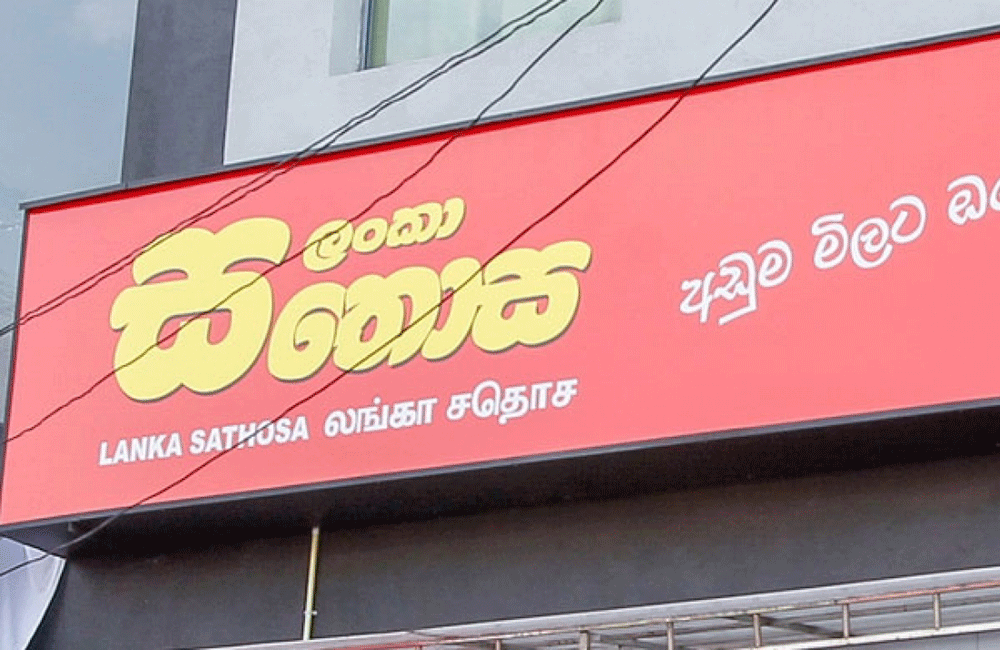
Sathosa slashes prices of four essential food items
Lanka Sathosa on Wednesday (25 Oct.) announced the price reduction of four essential food items.
Accordingly, the following price reduction will be in effect from today, the state-owned corporation said:
Samba rice – Rs.222 per kilogram (reduced by Rs. 06)
Chickpeas – Rs.549 per kilogram (reduced by Rs. 06)
Dhal – Rs.295 per kilogram (reduced by Rs. 05)
Red raw rice – Rs.169 per kilogram (reduced by Rs. 03)
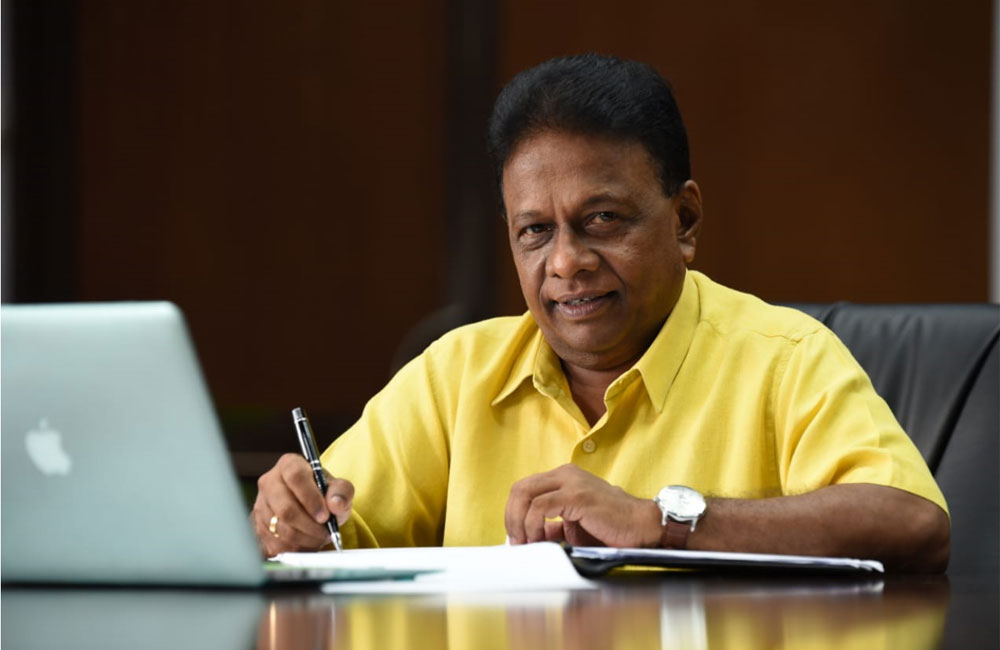
New role for Dullas
The Freedom People's Congress (FPC) has reportedly decided to entrust its leader Dullas Alahapperuma with the task of talking to the Samagi Jana Balawegaya and other parties on contesting future elections under a common opposition alliance.
Discussions at individual levels could affect the group’s unity, it has noted.
Alahapperuma will negotiate with other parties and inform the FPC about developments.

Sri Lanka to establish Anti-Narcotic Command to curb drug influx
Senior Adviser on National Security to the President and Chief of the Presidential Staff, Sagala Ratnayaka, announced the forthcoming establishment of an ‘Anti-Narcotic Command’ to combat the influx of drugs from foreign nations into Sri Lanka.
The initiative is being launched in a bid to empower the country’s armed forces and the State Intelligence Service to collaborate with international intelligence agencies when conducting necessary operations.
Ratnayaka conveyed these insights today (24 Oct.) while inspecting the recent seizure of over 200 kilograms of heroin valued at over Rs. 4 billion, which was intercepted in the high seas and brought to the Colombo port on Monday (23 Oct.).
He emphasized that the drafting of essential legislation to create this ‘Anti-Narcotic Command’ is currently underway and will soon be presented to the Parliament.
Furthermore, Ratnayaka underscored that while 65% of drug raids result in arrests, the remaining 35% continues to infiltrate the country. He stressed the urgency of implementing a modern program aimed at entirely preventing the entry of drugs into our country.
Expressing his views further Sagala Ratnayaka said;
First and foremost, I extend my congratulations to both the Navy and the Police Narcotics Bureau for successfully apprehending 200 kilograms of heroin. Remarkably, this marks the second substantial drug seizure within a brief span of time.
The initial operation was executed based on intelligence provided by the Police Narcotics Bureau, while the most recent operation, according to information from the State Intelligence Service, was carried out by the Navy. The widespread global network of drug trafficking necessitates on-going efforts to safeguard our population from this peril.
In collaboration with the Navy, Police and various government agencies, Sri Lanka actively conducts drug raids. These endeavours result in the apprehension of approximately 65% of drugs attempting to enter the country, with the remaining 35% still making their way in.
According to the latest intelligence, these drug shipments arrive at the international maritime border via large vessels and are subsequently transported into the country via smaller boats. This expansive drug network poses a significant challenge.
Furthermore, there is a concerning possibility of arms trafficking intertwined with these drug trades. Vigilance in this regard is paramount, as it could pose a substantial threat to national security. To address these challenges, the development of new legislation is underway, with the creation of an Anti-Narcotic Command in progress. Proposed laws are in preparation and will be presented to the Parliament for future implementation.
Navy Commander Vice Admiral Priyantha Perera and a group of high ranking officers of the Navy were also present on this occasion.
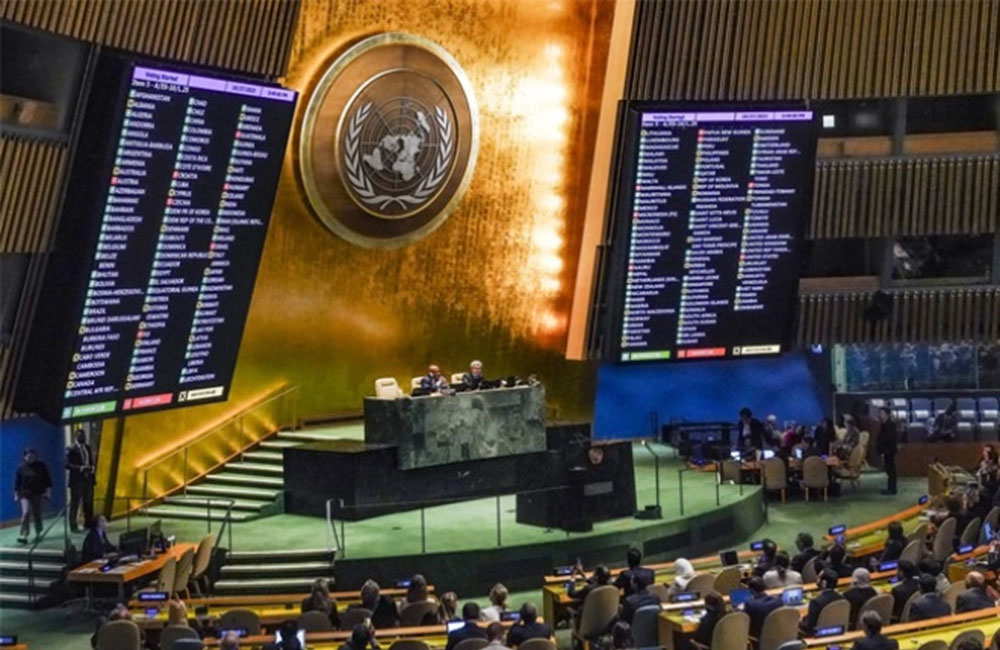
SL votes in favour of UN resolution calling for ‘humanitarian truce’ in Gaza
Sri Lanka has voted in favour of the United Nations (UN) General Assembly’s resolution calling for an immediate and sustained ‘humanitarian truce’ in Gaza.
A total of 120 countries, including Sri Lanka voted in favour of the resolution, while 14 countries, including Israel and the United States of America, voted against it.
India, Australia, Germany, Canada, Japan, Ukraine and the UK were among 45 countries that abstained from voting.
Accordingly, the UN General Assembly on Friday adopted the resolution calling for an “immediate, durable and sustained humanitarian truce” between Israeli forces and Hamas militants in Gaza.
The resolution also demands “continuous, sufficient and unhindered” provision of lifesaving supplies and services for civilians trapped inside the enclave, as news reports suggest Israel has expanded ground operations and intensified its bombing campaign.
Israel has intensified its bombardment of the besieged Gaza Strip as internet and mobile communications services collapsed in the Palestinian territory. An extended series of large explosions lit up the sky over Gaza City after nightfall on Friday.
Israel has bombed the strip relentlessly since Hamas launched an attack on southern Israel on October 7 that killed more than 1,400 people.
Israel has also imposed a “complete siege” on Gaza, cutting access to food, water, fuel, and electricity for the enclave’s 2.3 million residents who have few options for seeking refuge.
The health ministry in Hamas-controlled Gaza has published a report listing the names of more than 6,000 “documented deaths” in Gaza since the attack.

Cabinet green lights plans to waive visa fees to tourists from 07 countries
The Cabinet of Ministers has approved plans to waive visa fees for tourists visiting Sri Lanka from seven countries.
This includes China, Russia, India, Thailand, Indonesia, Malaysia and Japan.
Chairman of the Sri Lanka Tourism Development Authority Priantha Fernando said the decision was reached to rebuild Sri Lanka's tourism sector.

Fake documents submitted by SJB to Supreme Court
President's counsel, Faizer Mustapha, representing the petitioners in the case concerning the dismissal of Ministers Manusha Nanayakkara and Harin Fernando from the Samagi Jana Balavegaya political party, has asserted that the documents submitted by the party are fake.
Mustapha urged the court not to accept these documents during the ongoing legal proceedings.
He informed the court of a significant contradiction between the documents related to the statement of objection submitted by the Samagi Jana Balawegaya and the documents submitted in the initial motion regarding the expulsion of the two ministers from the party.
The legal representative of the petitioners argued that a meeting report linked to the removal of the ministers had been presented by the Samagi Jana Balawegaya through a motion. They claimed that this report had been created and submitted after the case had commenced, suggesting potential manipulation of the documents.
Given these concerns, a request has been made to the court to issue an order rejecting the contested documents. The court has stated that a decision will be reached after thorough deliberation.
Legal experts have pointed out that presenting fake documents to the court could result in a case of contempt of court, adding a new layer of complexity to the ongoing proceedings related to the ministers' expulsion from the Samagi Jana Balavegaya.
(Hiru News)
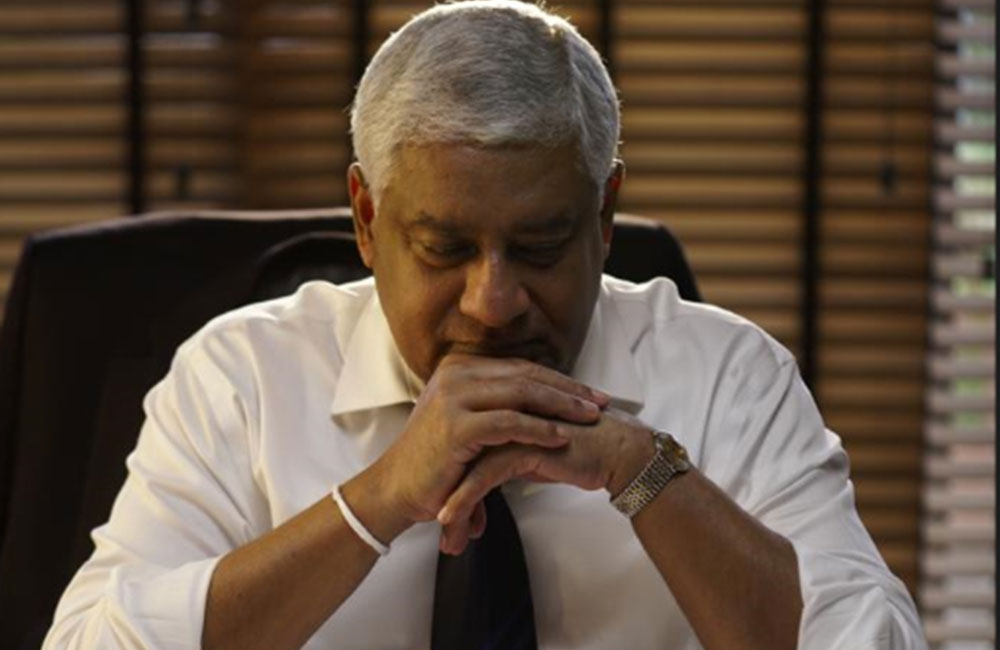
A new bill for online safety!
The existing online safety bill will be submitted for cabinet approval again as a new bill with additions, public security minister Tiran Alles said.
He told the cabinet at a meeting yesterday (23) that he discussed the draft submitted to parliament with civil society and media organizations few weeks ago.
Alles said that amendments effected incorporating their ideas and suggestions were referred to the Supreme Court by the attorney general while he was abroad.
Non-receipt of cabinet approval for same has caused a legal problem, he explained.
In that light, he said he instructed the AG to inform the SC that a new draft will be submitted with cabinet approval.
Lawyer-MP M.A. Sumanthiran said before courts a few days ago that the existing bill should be withdrawn and a new one introduced in its place.
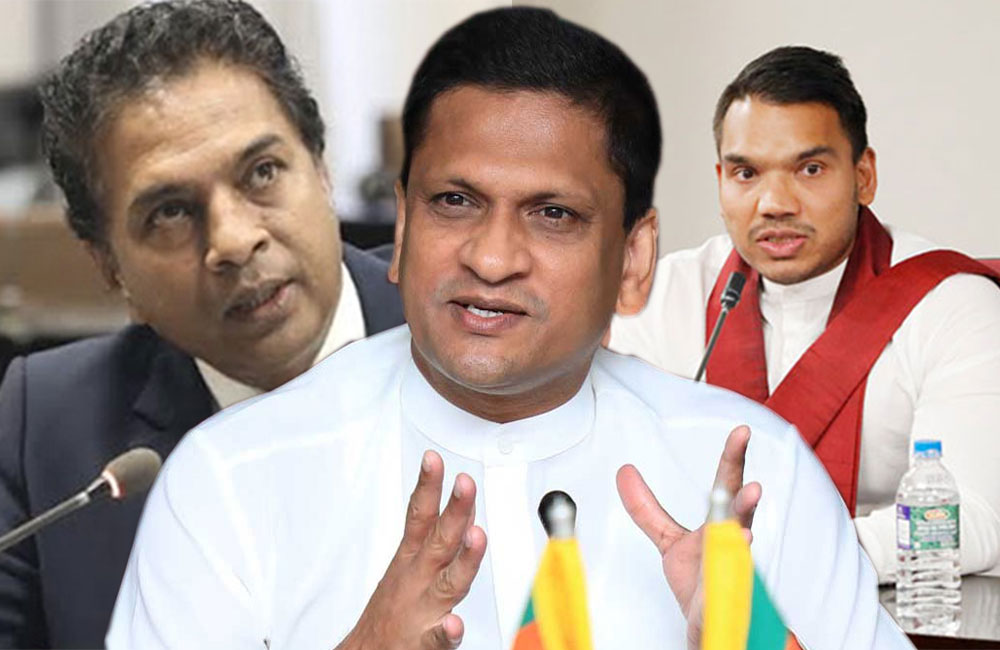
Lanza lashes out at SLPP in defence of minor cabinet changes
MP Nimal Lanza has lashed out at SLPP general secretary Sagara Kariayawasam in defence of the minor cabinet reshuffle, which he described as the correct thing done by the president.
If the party cannot work together with the president, it is free to defeat budget 2024 and go for a general election, Lanza told the media.
The SLPP breakaway independent MP said the change in the health minister was effected following a discussion between the president and the SLPP leadership.
The main issue raised by that party’s general secretary was not that change, but that the SLFP’s getting more responsibilities.
Amalgamating plantation industries with the agriculture ministry will help both to work closely together.
It was a very correct decision taken by the president, he said.
The finance ministry’s takeover of institutions due for privatization is a most appropriate decision too.
“If Sagara Kariyawasam and others have the power, they can show it. They can take a firm decision without saying things. They can sit in the opposition,” said Lanza.
Kariyawasam can tell the president to the face that they will no longer support him, he said, and challenged him to leave the government.
The SLPP general secretary kept his silence when Namal Rajapaksa was showered with ministries during the Gotabaya Rajapaksa regime that had four or five cabinet reshuffles, he pointed out.
“They kept their silence like kittens,” he added.
Lanza also dared the SLPP general secretary for a face-to-face debate with him on past and present affairs of politics.

Sri Lanka’s September consumer inflation dips to 0.8%
The overall rate of inflation as measured by National Consumer Price Index (NCPI) on a year-on-year basis has dropped to 0.8% in September 2023 from 2.1% in August 2023, according to the Department of Census and Statistics.
Meanwhile food inflation has increased to -5.2% in September 2023 from -5.4% in August 2023.
Issuing the NCPI, for the month of September 2023, the Director General of Census and Statistics said that headline inflation as measured by the Year-on-Year change (The percentage change in the current month NCPI over same month NCPI of last year) based on the NCPI has been compiled as 0.8%.
The headline inflation reported for the month of August 2023 was 2.1%.
Contributions to the inflation rate of September 2023 from the food group and non-food group are -2.4% and 3.2% respectively, the report said.
On a monthly basis, the Year-on-Year inflation of the food group increased to -5.2% in September 2023 from -5.4% in August 2023 and the Year-on-Year inflation of the non-food group decreased to 5.9% in September 2023 from 9.0% in August 2023.
Comparing the month-on-month changes, NCPI (Base 2021=100) in September 2023 has increased to 203.5 from 201.9 reported in August 2023. This shows an increase of 1.6 index points or 0.8 percent as compared to August 2023.
The month-on-month change was contributed by increases in food items and non-food items of 0.41% and 0.36% respectively.
Meanwhile core inflation, which reflects the underlying inflation by excluding volatile items of food, energy and transport groups in the economy as measured by the Year-on-Year change based on NCPI (Base 2021=100) for the month of September 2023 was decreased to 1.7% from 4.1% reported in the month of August 2023.
facebook sharing button Sharetwitter sharing button Tweetemail sharing button Emailwhatsapp sharing button Share
Page 241 of 682